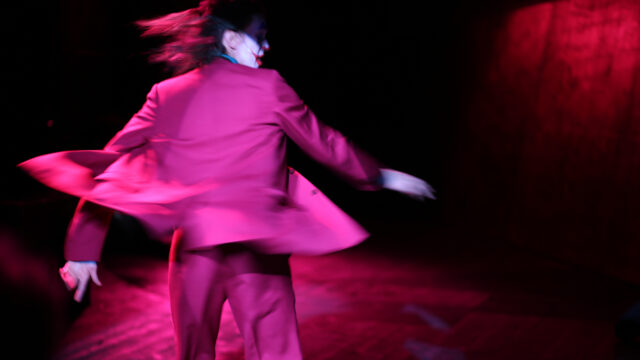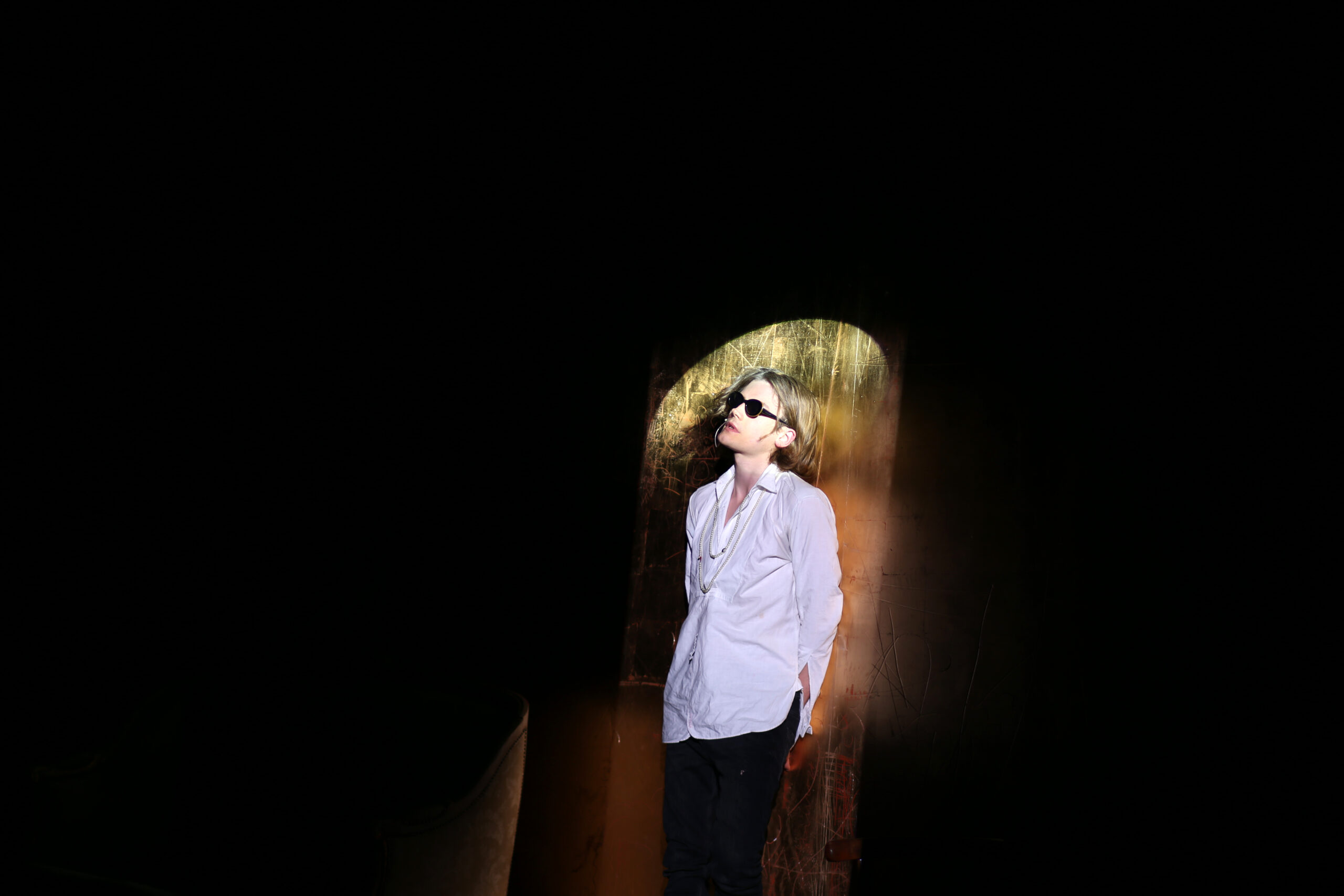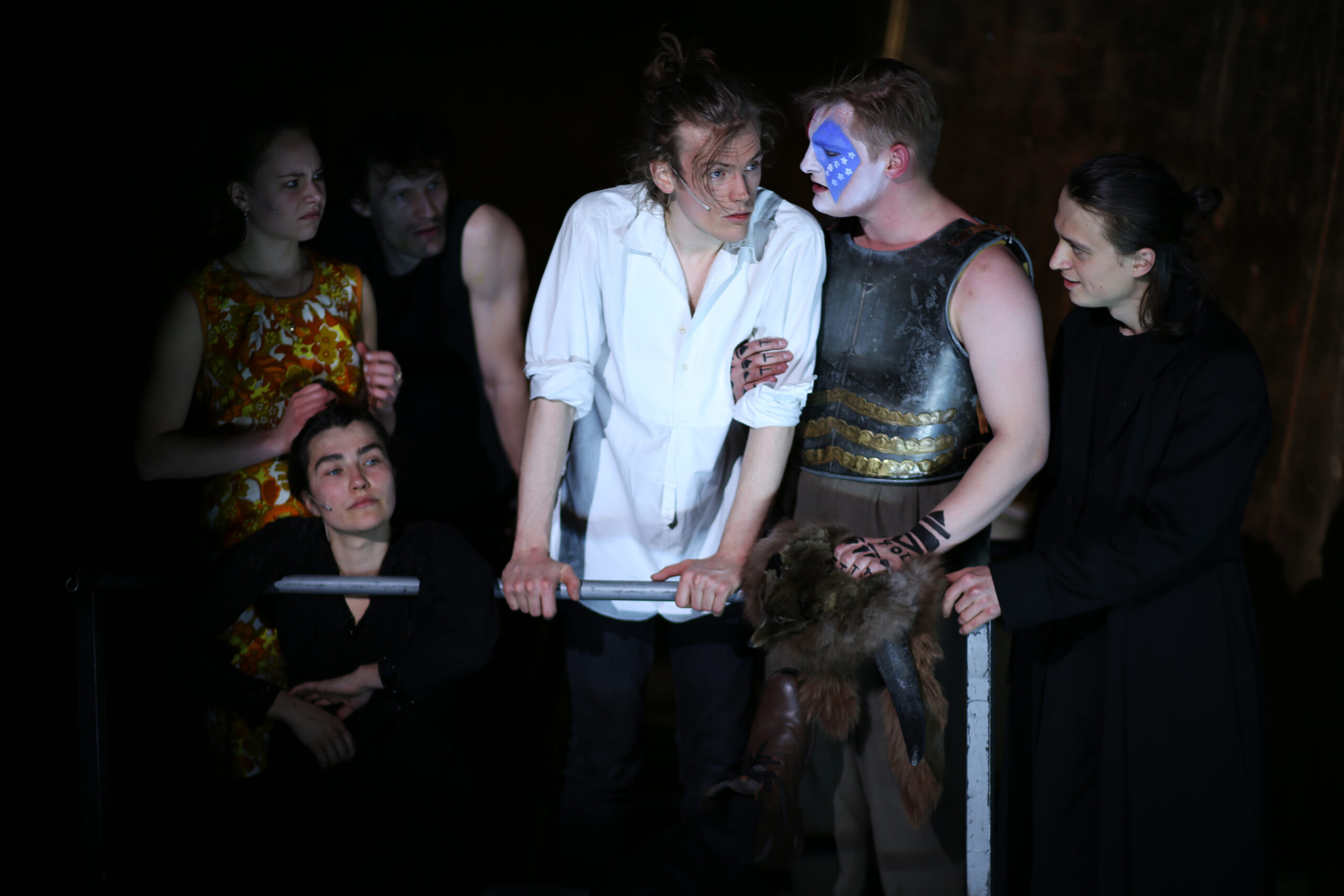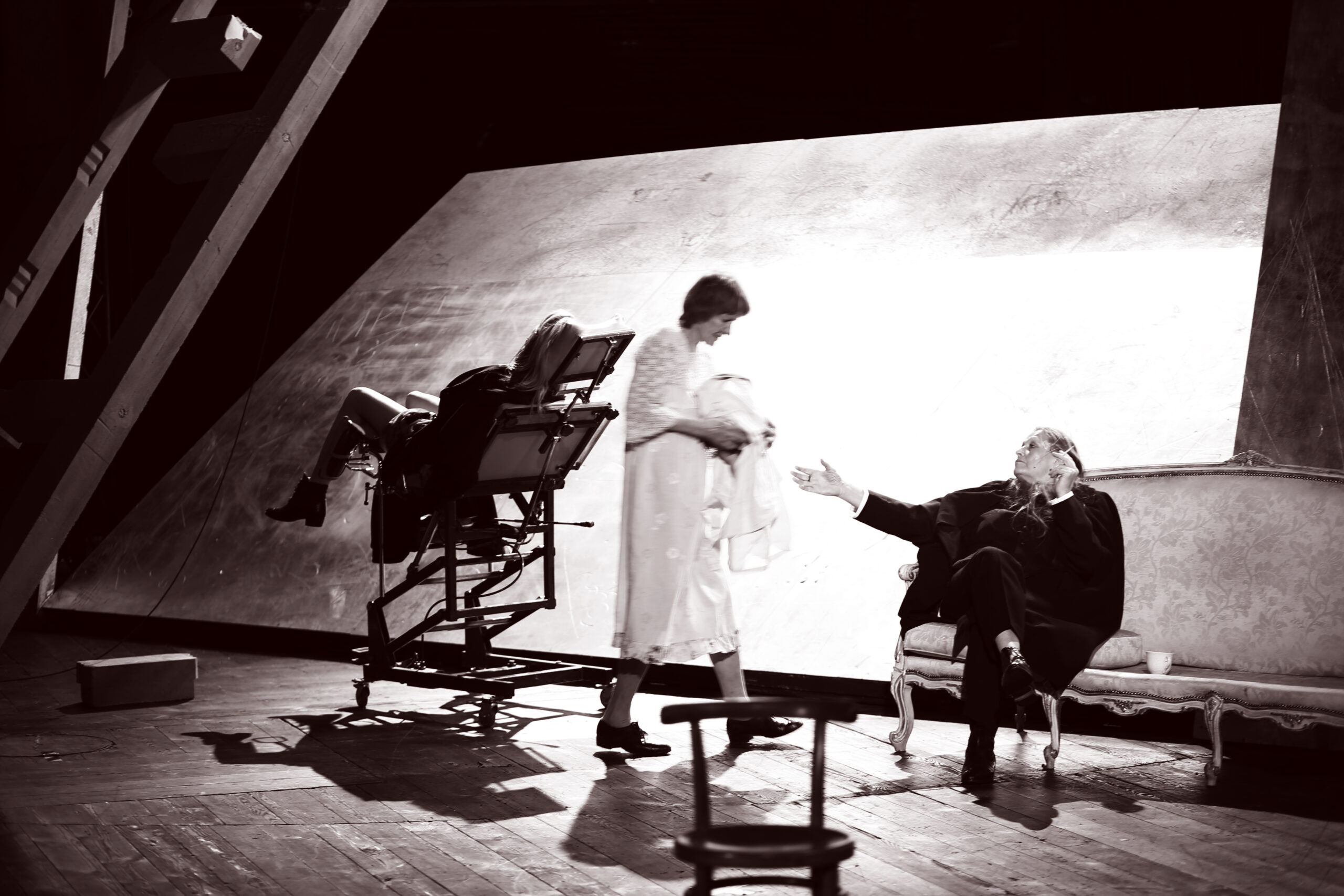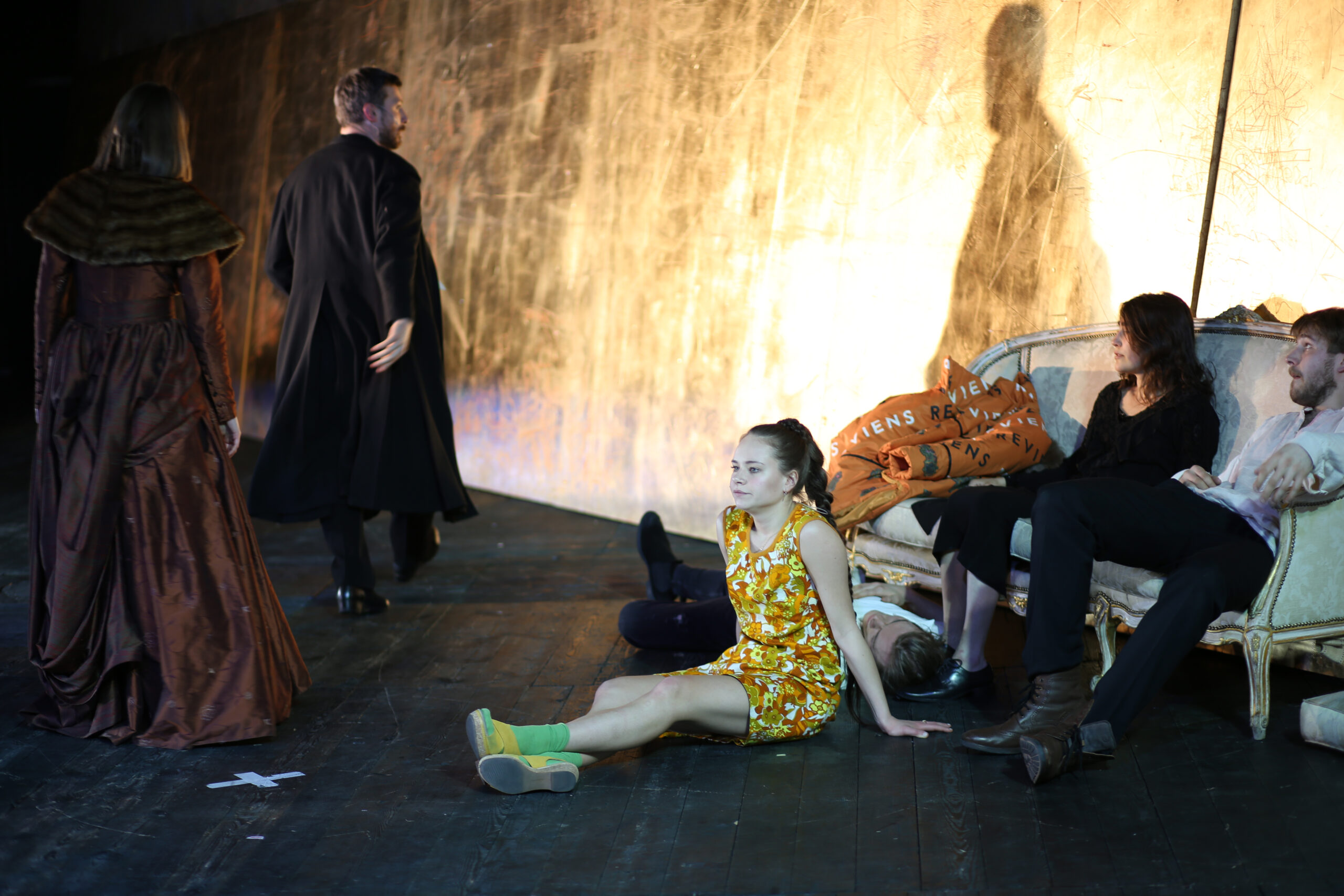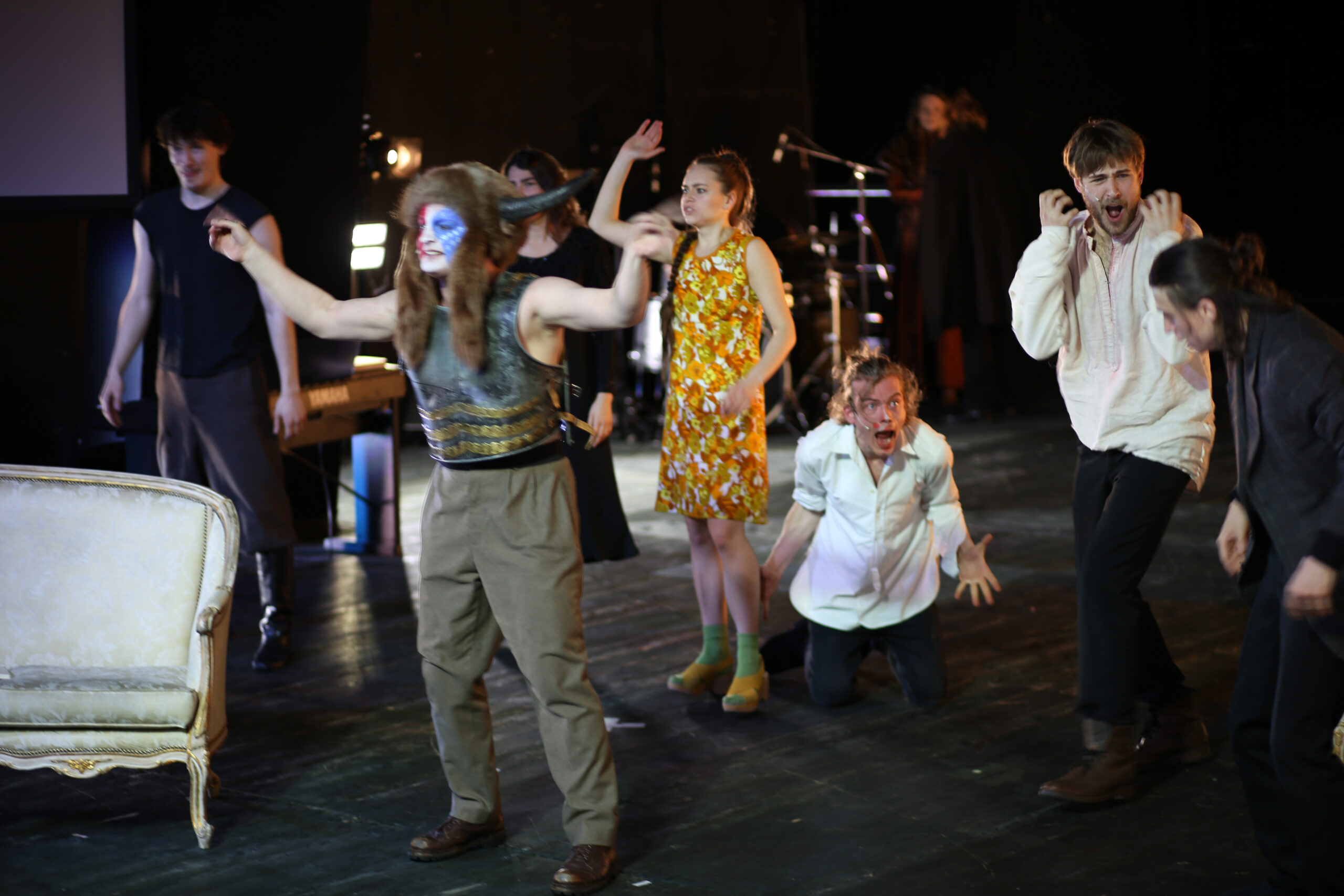Repertoire
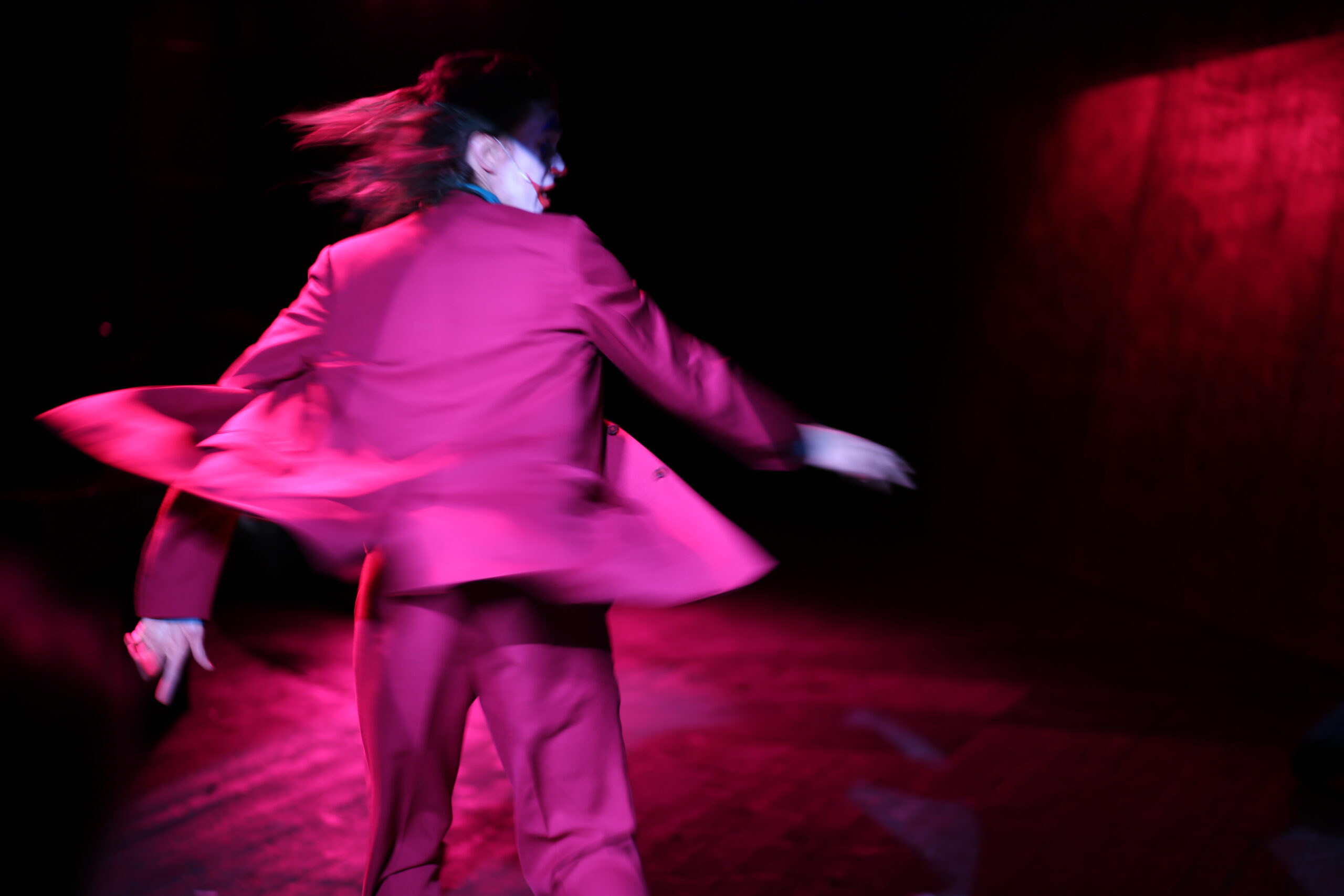
THE DEMONS. A play about drinking tea
Dir. Paweł Miśkiewicz
ul. Starowiślna 21
Premiere
date
2021
When we play
- 30.04
2021 - 11.06
2021 - 12.06
2021 - 13.06
2021 - 21.01
2022 - 22.01
2022 - 23.01
2022 - 30.09
2022 - 01.10
2022 - 02.10
2022 - 04.10
2022 - 05.10
2022 - 21.12
2022 - 22.12
2022
Duration
1 intermission
When Dostoevsky began publishing “The Demons” in the latter half of the nineteenth century in the pages of Russki Vyestnik, the world was in turmoil. Marxist thought was in the ascendant, industrialisation was galloping ahead, new social ideas were emerging. Nietzsche had come out with his radical critique of Christianity and all of Western culture based on Christian illusions. “The Demons” captured the spirit of these times. This tale of a group of young revolutionaries who long to bring about a great social upheaval to overthrow the old order is still considered a prophetic work. Dostoevsky made a keen assessment of the impending dangers that revolution could bring. The cruelty and unscrupulousness he ascribed to the revolutionaries were mirrored in the dreadful regimes of Stalin and his successors.
We do not know how our society and politics will look in a year’s time, or after that. Yet one thing is certain: major systemic changes are on their way. Will they derive from dissatisfied grass-roots social groups or will they be brought on by policies to combat climate change? In everyday life, we see that people have reached a boiling point. Every moment sees another revolt, protest, or riot. On the surface, there is no common denominator: the unrest in the USA after the murder of George Floyd, the months of protests in Hong-Kong against Chinese authoritarianism, the class-based rage of the gilets jaunes in France, or the supremacist demonstrations of the populists. Yet it would seem that all these movements are joined by the same emotion, and that is anger.
What will the revolution of the twenty-first century be like (for that there will be one seems certain)? Will it be condemned to spectacular failure, much like the revolution started by Verkhovensky? Is a positive revolution at all possible? In an era of advanced technology, in-depth social discourse, political correctness and carbon-free projects, might the “Demons” of the nineteenth century reveal themselves to be Angels?
Created for the fifty-year anniversary of the premiere of Andrzej Wajda’s legendary “The Demons,” this new staging of Dostoevsky’s novel demonstrated the challenge this tradition poses today. Paweł Miśkiewicz’s performance is built on the powerful clash between the old “Demons” and today’s. At the beginning, Wajda’s staging is the subject of semi-blasphemous mockery of anachronistic theatre, the heroic tale of the “golden epoch,” and the brilliant director. This mockery is saturated with a revolt against the lifeless theatre of the past, which keeps coming back, strangling the creativity of new generations.
Dariusz Kosiński, Tygodnik Powszechny
Did Paweł Miśkiewicz and his actors want to take on a legend? Did they want to polemicize with the adaptation of “The Demons” of 1971? I believe both these ideas are partly correct.(…) A fragment of a film showing a monologue by Nowicki, who is shouting and expressive, shows that Daniel Namiotko [as Stavrogin] has built his character as a response to his counterpart of half a century before. His whispers end up being more compelling.
Monika Oleksa, Nowy Napis
The performance uses excerpts from “Biesy po latach” film directed by A. Wajda with participation of A. Wajda and K. Zachwatowicz. The film was produced by Amulet Films Sp. z o. o.

Cast
- Natalia Kaja Chmielewska
- Ewa Kaim
- Ewa Kolasińska
- Katarzyna Krzanowska
- Aleksandra Nowosadko, Agata Łabno (AST) **
- Anna Paruszyńska - Czacka
- Szymon Czacki
- Zbigniew W. Kaleta, Paweł Charyton (AST) **
- Mikołaj Kubacki
- Stanisław Linowski
- Daniel Namiotko (a guest actor)
- Przemysław Przestrzelski
- Iwona Bielska
- Jan Nowicki (picture and voice)
- Tomasz Kudyk (musician)
Creators
- Paweł Miśkiewicz Director, script
- Joanna Bednarczyk Script, dramaturg
- Tadeusz Zagórski, Zbigniew Podgórzec Translation
- Barbara Hanicka Scenography, costumes
- Rafał Mazur Music composer
- Tomasz Kudyk Trumpet
- Paweł Sakowicz Choreographer
- Marek Kozakiewicz, Adam Lipiński Video, lighting director
- Jerzy Rogiewicz Concept of performance "Karl Marx. Capital"
- Hanna Nowak Stage manager
